
Although not life-threatening, excess sulfur in drinking water can lead to:
Infants are especially at risk because drinking water with high sulfur levels is most harmful to them.
Most people can smell hydrogen sulfide in water at concentrations of 0.5 parts per million (ppm) or more, as levels higher than 1 ppm produce a rotten egg smell and corrode metal pipes.
Keep reading to find the answer to “is sulfur in water bad for you,” what are its dangerous effects, and ways to safeguard yourself.
Is Water With Sulfur Safe to Drink? [Health Risks Revealed]

Short answer: Not at all!
Long answer: Drinking water with excess sulfur is not safe for your health.
As mentioned earlier, it can cause diarrhea, dehydration, and even lung and skin problems.
Let me make this clear to you –
Sulfate and Hydrogen Sulfide is NOT SYNONYMOUS!
They may be interrelated but not identical. How? We will explain that later in this article.
But first, let’s understand the health effects of excess Sulfate (more than 600 mg/L) in water. See this table:
| Health Effects | Who is at the most risk? | Immediate treatment options |
|---|---|---|
| Diarrhea | Infants and small children | Pepto-Bismol and Imodium (over-the-counter medicines) |
| Gastralgia (stomach pain) | Young children and older adults | Taking a digestive or anti-wind medicine. |
| Catharsis effect | Adult males | Immediate medical attention and therapy |
| Dehydration | People with higher metabolism rates. | Drinking mineral water or oral rehydration solutions |
Most groundwater sources naturally contain Sulfate. For the same reason, people who have used groundwater with a high level of sulfur for a long time become accustomed to experiencing negative health effects like regular stomach aches.
But it’s never too late to make the right decision.
There are several quick and simple ways to remove sulfur from water. (Look at detailed methods of removing sulfur from water through different filter systems in the next section).
But first, let’s discuss in detail the hazardous effects of excess Sulfate in water –
Also Read: Why Does My ZeroWater Tastes Like Lemon?
What Do You Do If You Have Sulfur In Your Water?
Expert Advice:
To select the best water filtration system and make your water sulfur-free, have your water tested by a licensed lab. The kind of sulfide in the water and the presence of additional impurities determine the best sulfur treatment technique.
Follow this flowchart for complete clarity:
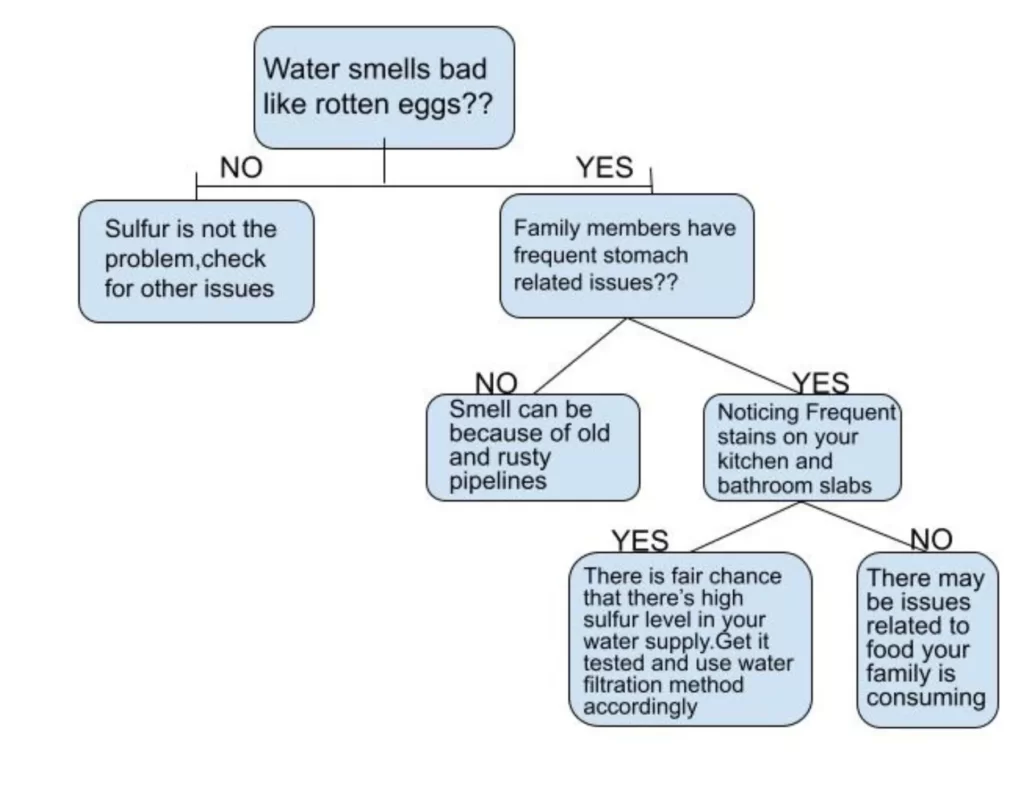
Aeration
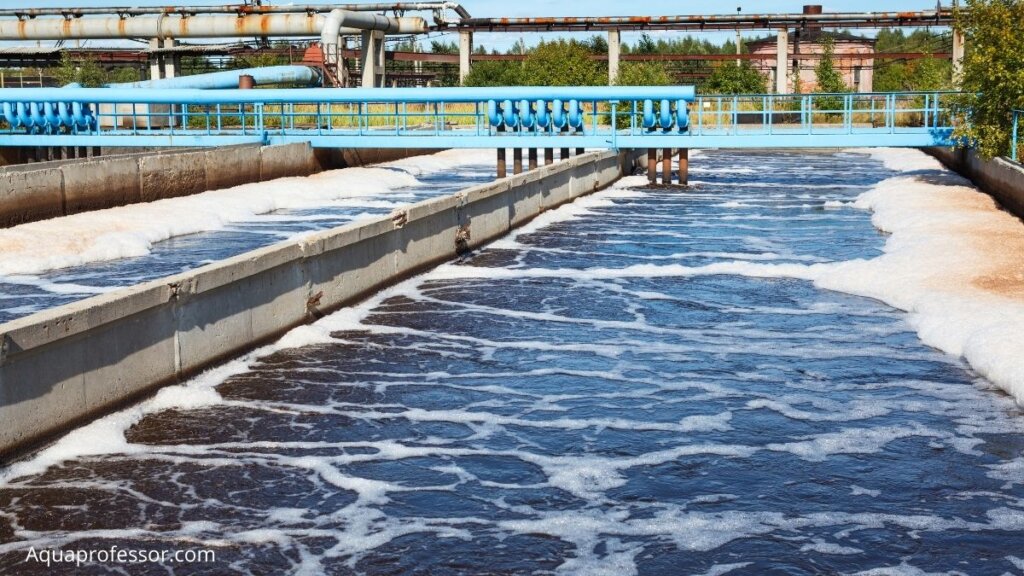
Aeration removal techniques involve injecting air into the water to increase its oxygen level. The increased oxygen levels react with hydrogen sulfide to form and release bubbles and reduce its concentration in water.
Aeration equipment works when the problem is in groundwater. This method treats water at the point of entry, eliminating hydrogen sulfide concentrations up to 2 ppm.
Maintaining a correctly constructed aeration system is less expensive than chemical-based treatment methods.
Also Read: 5 Best Sulfur Filter For Well Water
Reverse-Osmosis

Depending on the RO unit type, this filtering technique can remove around 93 to 99 percent of the Sulfate in drinking water. In this filtration method, water passes through a semipermeable membrane with microscopic pores.
In contrast to iron removal or activated carbon filters, a whole-house reverse osmosis system will eliminate sulfur content along with all common chemical contaminants from water.
Also Read: Can RO Remove Microplastics?
Shock Chlorination
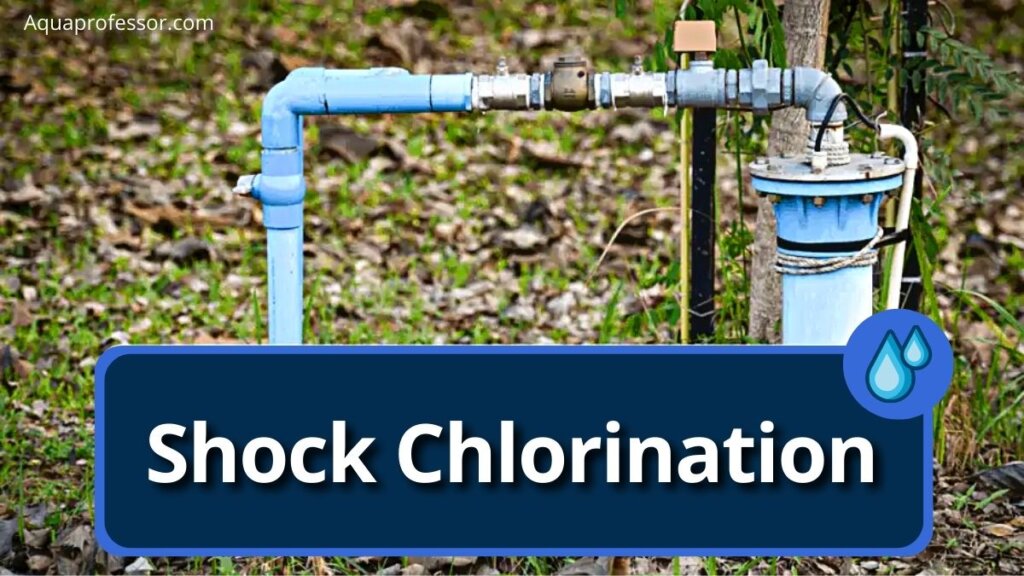
You can eliminate hydrogen sulfide or sulfur bacteria from water by adding chlorine bleach to destroy the weird smell and harmful effects.
In this method, you have to put a single, large dose of ordinary home bleach (5.25 percent hypochlorite) in water, circulate it through the plumbing system, give the bleach (chlorine) 12 to 24 hours to kill the bacteria, and then collect and flush the extra bleach away through a backwashing carbon filter.
Distillation
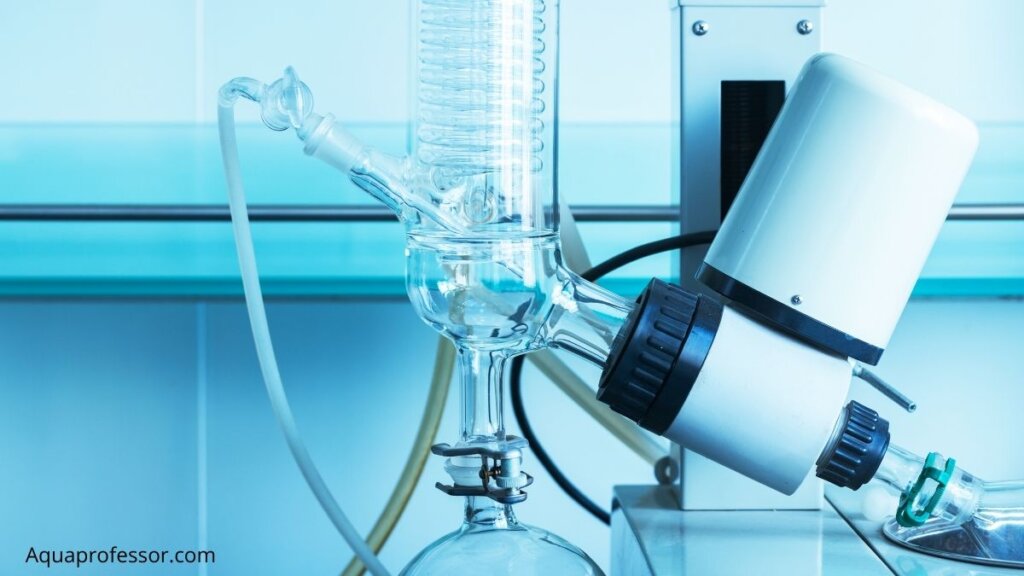
Distillation is a procedure that boils water and produces steam for water filtration. As the steam rises, pollutants like Sulfate are left behind. Distillation units, when used correctly, may remove nearly 100 percent of Sulfate and produce clean water.
Distillation systems purify water from Sulfate, reduce the concentration of hazardous metals, and eliminate some organic pollutants.
Also Read: Pink Bacteria In Water
Sulfate Vs. Sulfide In Drinking Water: Difference Explained
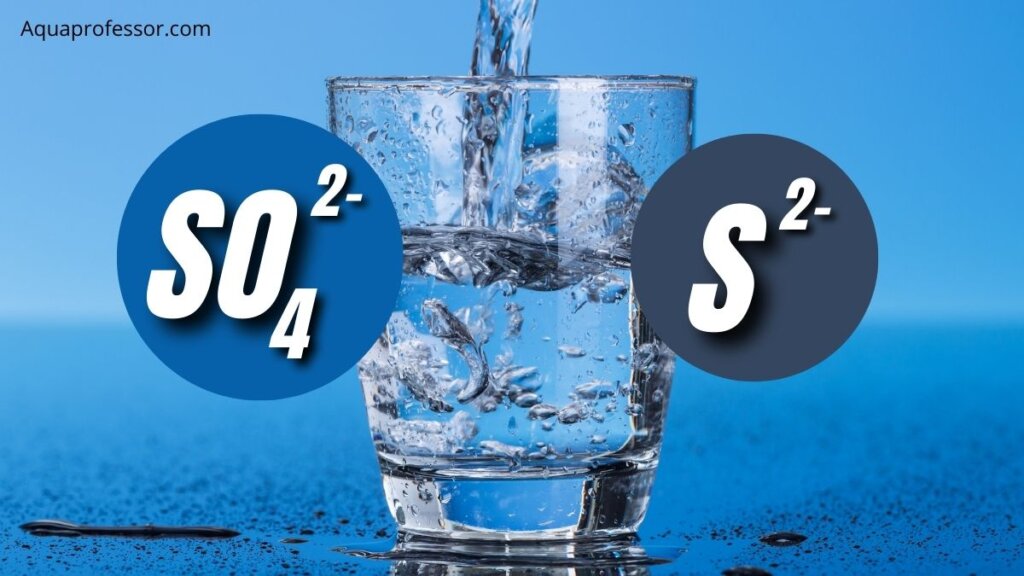
Sulfates naturally occur in some soil and rocks, composed of the elements sulfur and oxygen. The oxidation of sulfite ores is the source of most sulfate compounds. It gets dissolved into the groundwater without producing any gas and is also odorless.
High levels of Sulfate can cause diarrhea, dehydration, and corrosion, especially in copper pipes.
On the other hand, hydrogen sulfide gas can come from multiple underground sources, such as bacteria, decaying plant matter, or human activities. However, surface water supplies containing hydrogen sulfide are very rare.
Wells drilled in sandstone or rock and those close to coal, peat, or oil reserves frequently contain high levels of Hydrogen sulfide.
Large amounts of hydrogen sulfide are produced mainly by sulfur-oxidizing bacteria or sulfur-reducing bacteria (like Thiobacillus thiooxidans). They utilize sulfur as an energy source to form different compounds, including hydrogen sulfide and sulfuric acid.
The presence of Hydrogen sulfide in water over 1 ppm causes nausea, stomach discomfort, irritability, weakness, headaches, and dizziness.
FAQs On Is Sulfur In Water Bad For You?
What’s the source of sulfur in drinking water?
The natural source of sulfur in drinking water is through the chemical reactions of groundwater with sulfur ores present beneath the earth’s surface. However, it is also produced by sulfur-producing bacteria or other chemical processes within water heaters if not maintained properly.
Does boiling water remove sulfur?
No, boiling sulfur-containing water only evaporates water. So, if you boil water containing sulfur, only one of them will be left, i.e., sulfur, because the boiling point of sulfur is significantly higher than the boiling point of water. Thus, you will be left with a pot of sulfur rather than water.
What kind of filter removes sulfur?
Only those filters that can also remove iron and manganese are capable of filtering sulfur from water. Activated carbon filters, oxidizing media filters, and iron removal filters are some of the filters that can remove sulfur.
Do water softeners remove sulfur?
No. Most water softeners will not eliminate sulfur from the water or the odor of rotten eggs. In contrast, sulfur can harm water softeners.
Can sulfur in well water hurt you?
It depends on the level of sulfur in the well water. Above 250 mg/L, sulfate levels cause bitter tasting water and corrode copper pipelines. Hydrogen sulfide gas produces a rotten egg smell when present at over 0.5 ppm in water and can lead to stomach pain, vomiting, and even death in some cases.
Adarsh is a Health & Nutrition Sciences graduate with expertise in environmental health. He is associated with ventures like Glacier Fresh Filter and Simpure Filter Systems. Through Aqua Professor, he intends to provide helpful information to every home to help them make smarter decisions.

my cold water smells highly of rotton eggs. the hot not that much. Tastes like good water. The smell also goes away when the cold water has run a while. The coffee pot only has a small amount of yellowish scales on the bottom, and it is old and has been used a lot. Your article says that 250 mg/L smells, and also that 1ppm does, and that is all i have to go on to equate the two types of measuring. Nobody here has had any of the symptoms you describe, which i think is weird, but the man who grew up here just died of prostate cancer at about 60. My sister has lived here for 10 years and seems fine. I am fine too except my gums have started bleeding every time i brush my teeth which is twice a day. I’m wondering if the sulfur evaporates out of an open glass, like clorine.
Hey Samuel,
Sulfate-reducing bacteria (SRB) can cause cold water to smell like rotten eggs. More than 1 ppm of iron can cause yellowish stains. Ingestion of Waterborne Nitrate and Trihalomethanes is linked to prostrate cancer
Acidic water can cause bleeding hums and other oral health problems -assuming your tooth health is good and you don’t have vitamin C deficiency
You need a water treatment solution comprising sulfur and iron and acid neutralizing filters. You can get RO to remove nitrates and THMs carbon filters can remove THMs. You can opt for a water test to detect exact levels of sulfur, iron, nitrates, THMs, and water pH for a correct treatment unit combo.
Hope this helps!